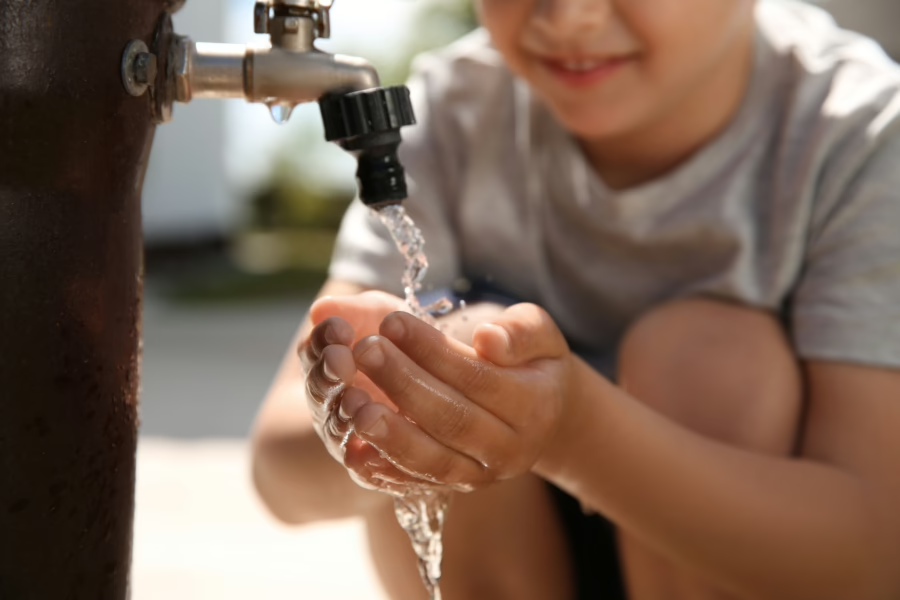COVID-19 Relief Package Becomes Law
After days of negotiation, Republicans and Democrats agreed on a compromise package of relief related to the COVID-19 crisis. After a harrowing 24 hours where Senators from both parties threatened to object to the package before ultimately passing it, and where members of the House similarly threatened to hold up passage in that chamber, the bill was ultimately passed and signed by the president. While this was happening, the weekly unemployment report was released, indicating that a record 3.28 million Americans filed for unemployment.
The $2.2 trillion Coronavirus Aid, Relief, and Economic Security Act (CARES Act) package that was passed is the largest federal response in history, and notably included (among other things):
- Direct payments to Americans: One-time checks for up to $1,200 a person ($500 per child), even for those who have no income or those who rely on Social Security and disability. The checks start to phase out after $75,000 of income, up to $99,000 of income where the checks stop.
- Enhanced Unemployment Benefits: Extended and upgraded unemployment insurance — including for freelancers, furloughed employees, and gig workers — for four months with an extra $600/month over the existing program.
- Aid for hospitals and health care workers: $100 billion into hospitals and the nation’s health system.
- Aid for state, tribal, and local governments: $150 billion to recover costs related to COVID-19 response. This does NOT include any assistance for water utilities. A version of the bill House Democrats had crafted had some water bill relief aid for low-income people. This makes the outlook better than average that some water sector relief will make it into the next bill.
- Relief for small businesses: For businesses with 500 employees or less, forgivable loans and cash-flow assistance from a $350 billion program.
- Relief for large corporations: $500 billion in loans, loan guarantees and other investments, overseen by a Treasury Department inspector general. These loans will not exceed five years and cannot be forgiven. The legislation also prohibits companies that receive loans from engaging in stock buybacks while the loans are active, and for one year after. Airlines will receive $25 billion (of the $500 billion) for passenger air carriers and $4 billion for cargo air carriers.
All eyes are now on the next COVID-19 relief package, which is being formed in Congress now. The timeline is unclear, but this next package is shaping up to be similar to the American Recovery and Reinvestment Act of 2009 (known as the Recovery Act or Stimulus Bill) package passed in response to the 2008 financial crisis and resulting recession. Every advocacy group in DC is eyeing the package for inclusion of their policy priorities. The water sector is collectively asking for assistance to utilities, many of whom are struggling with sharp revenue declines as water usage plummets and costs skyrocket with emergency response staffing and the costs associated with reconnecting disconnected customers and moratoriums on shutoffs in an effort to provide essential water service to combat the spread of the virus.
New EPA Memo on Temporary Enforcement Policy in Response to COVID-19
EPA released a new memo on Thursday March 26th outlining its new temporary policy on how the Agency intends to exercise its enforcement discretion. Citing worker shortages, social distancing needs and travel restrictions for both agency employees and contractors as a result of the pandemic, EPA is scaling back operations to enforce certain regulations and standards. For water utilities, EPA explicitly says “Public water systems have a heightened responsibility to protect public health because unsafe drinking water can lead to serious illnesses and access to clean water for drinking and handwashing is critical during the COVID-19 pandemic.” And while EPA expects all regulated entities to “continue to manage and operate their facilities in a manner that is safe and that protects the public and the environment,” if compliance with certain requirements is not practicable due to COVID-19, the policy states that EPA will generally not seek penalties for violations.
EPA will excuse penalties for things like failure to comply with routine compliance monitoring, training, sampling, and reporting requirements caused by COVID-19 related impacts. These provisions apply if facilities have acted responsibly, taken best steps to avoid noncompliance, and properly documented and, where applicable, reported noncompliance. Essentially, EPA expects public water systems to continue normal operations, maintenance, sampling, and compliance monitoring. EPA laid out a tiered level of priorities for utilities, with the highest priority being placed on monitoring to protect against microbial pathogens (required by the National Primary Drinking Water Regulations), followed by monitoring Lead and Copper Rule compliance and for nitrates/nitrites, and then monitoring for contaminants for which the system has been non-compliant. Importantly, the memo states that this new policy “does not provide leniency for intentional criminal violations.” The policy is in effect indefinitely (until repealed) and is retroactive, applying to events beginning on March 13, 2020.
Overall, EPA’s temporary policy does not change the laws on the books—just the expectations about what happens if you break them. Environmental and public health stakeholders are broadly concerned that EPA’s announcement will trigger bad behavior by diminishing the deterrents and consequences of breaking the law. Yet, now more than ever, the utilities in the US Water Alliance network are laser focused on maintaining high levels of service, and the notion of deliberate failure during this crisis is untenable. They are in the midst of shoring up essential operations and are on the frontlines protecting the communities they serve during this pandemic, just as they are around the clock 365 days a year. The EPA memo will have little practical effect on utility operations. However, utilities should be on the lookout for new contaminants in source water and wastewater as industrial and other polluting entities may take advantage of the relaxed enforcement policy. Should that occur, utilities may need to adjust operations to protect customers and the environment.


